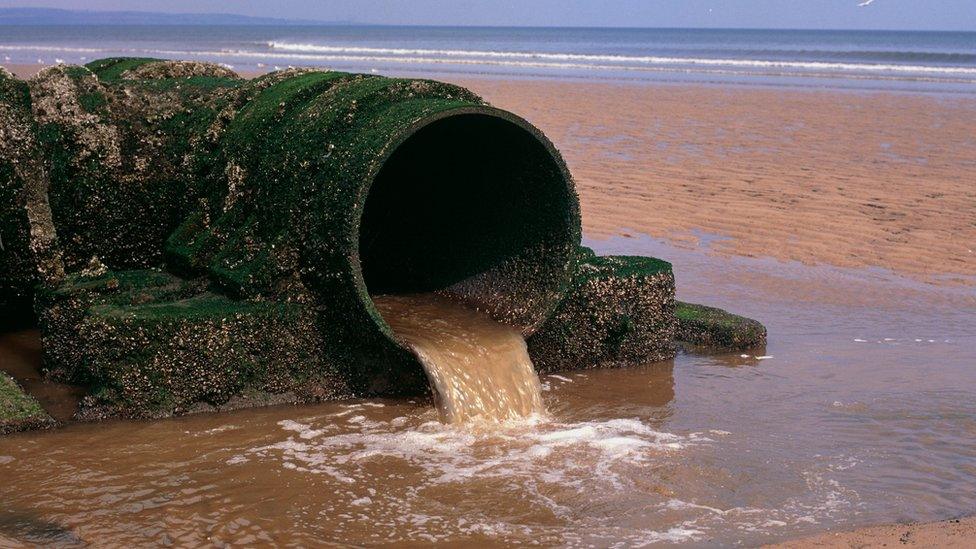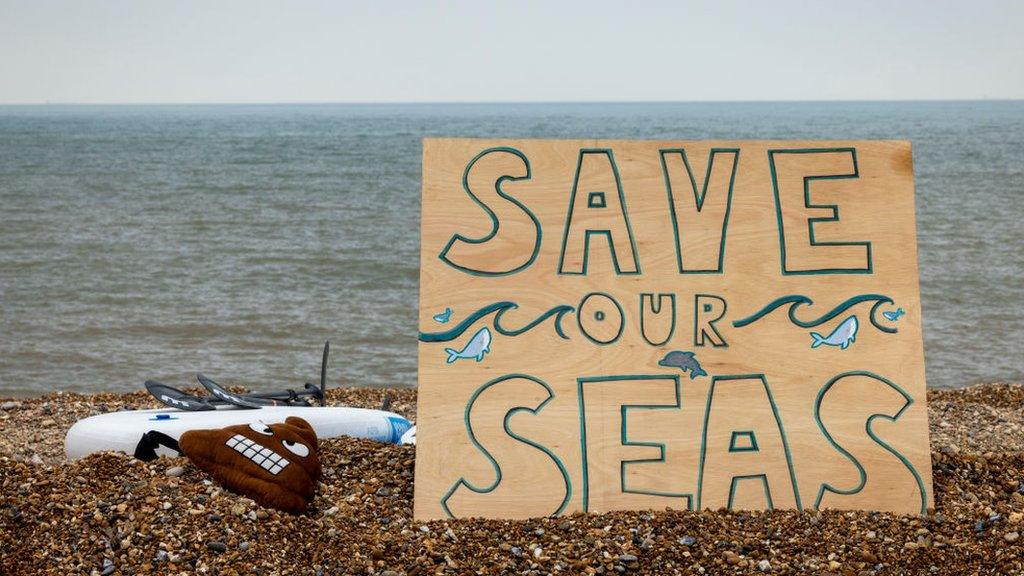Bonuses for Wessex Water bosses criticised over sewage
- Published
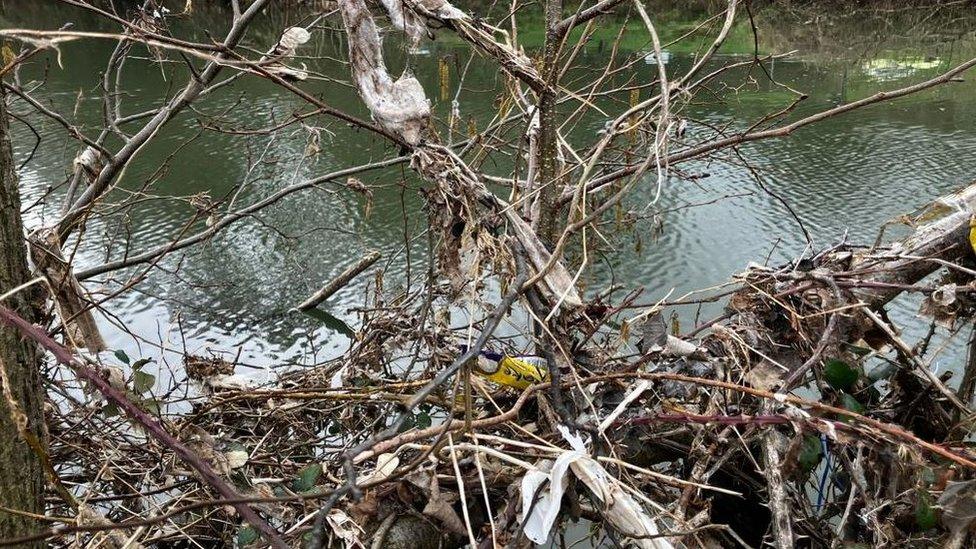
Wet wipes along the river Avon at Saltford in January 2023
Wessex Water paid £200,000 to four bosses tasked with protecting and enhancing the environment despite foul water discharges into rivers.
Sewerage overflow is causing bacteria in our water which is potentially harmful for wildlife and swimmers.
Water campaigner Feargal Sharkey called the bonusses "unjustified".
Wessex Water defended paying the bonuses for 2021-2022 and recent £63.5m dividends to shareholders as they say they have exceeded their targets.
The director of infrastructure development Matt Wheeldon said the bonuses do not drive him and he could not remember how much he received.
"Bonuses are based on performance, and performance is based on the targets we are set by third parties - by our economic regulator and our quality regulator," he said.
"Bonuses are only paid if we hit those targets. The level of the bonus is decided by an independent remuneration committee.
"Dividends are regulated by our economic regulator. They set us targets if we outperform those targets there is a reward for that. We spent closer to £300m last year on all our investment," Mr Wheeldon added.
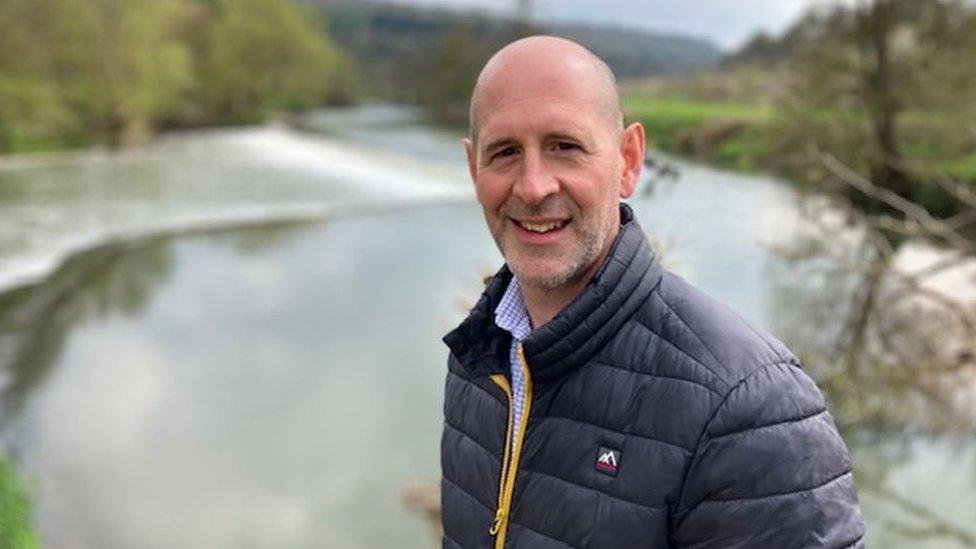
Matt Wheeldon from Wessex Water said he could not remember the size of his bonus
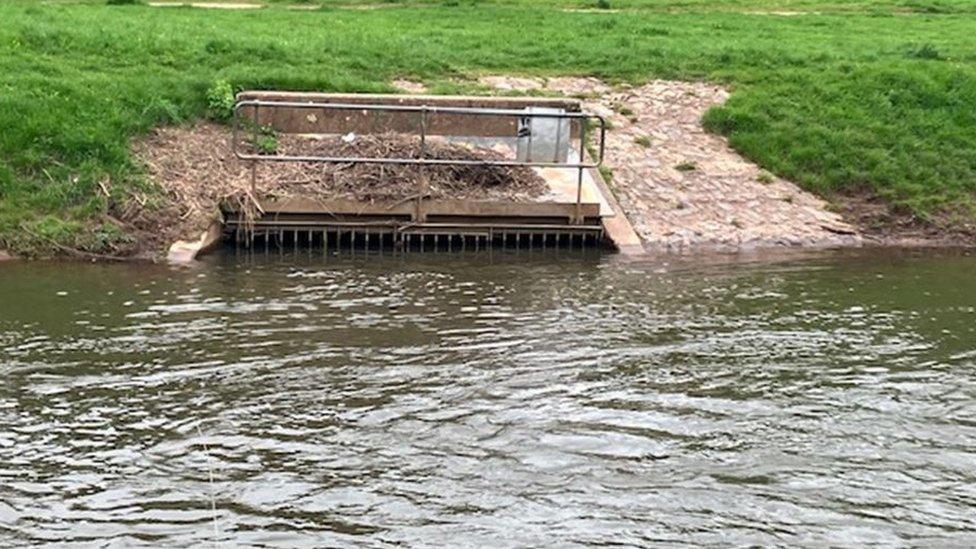
Taunton Priory storm sewerage outflow discharged diluted sewerage for a total of 295 hours in 2022
Former Undertones frontman turned water campaigner Mr Sharkey said the bonuses were "uncalled for, unjustified and should not have been paid".
"The simple reality is every single river in England is polluted and one of the largest sources of that pollution is the water industry," he said.
In 2022, Wessex Water got red flags for missing targets over increasing the stretches of clean rivers and beaches.
Wessex Water customer David Orr said he thought the bonuses and dividends were not appropriate.
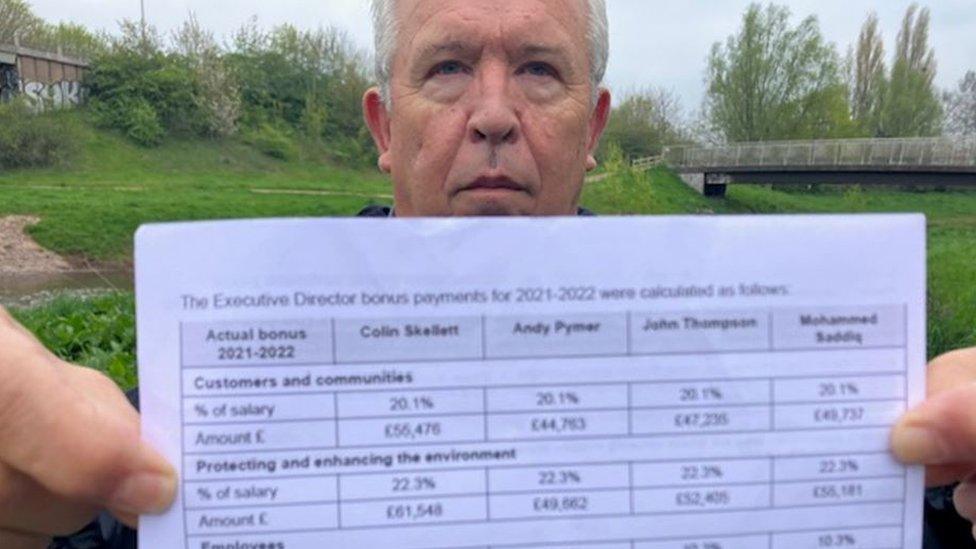
Water campaigner David Orr said he felt the bonuses were not appropriate
Speaking next to the Taunton Priory storm sewerage outflow, which discharged diluted sewerage for a total of 295 hours in 2022, the water campaigner said: "This is while the rivers are too polluted to safely swim in and while we have a phosphate problem on the levels."
Saltford fisherman Charles Halliday also feels the bonuses were inappropriate.
In January 2022 he reported the company to the Environment Agency after finding wet wipes and other sewerage overflow residue on the river Avon.
He said: "It's [wet wipes and sewerage residue] all entwined with the grass. And the Environment Agency has closed this case because they couldn't find any sewerage."
Wessex Water have since acknowledged there was a discharge of diluted sewerage at that time from storm overflows.
A few miles upstream, the owner of Warleigh Weir, Johnny Palmer, said bathers were really concerned about the water quality.

Johnny Palmer said some who had swan in Warleigh Weir had suffered illness
The entrepreneur said: "I have heard stories about people getting seriously ill from the river after swimming at the weekend.
"I have had emails come through saying that by the Wednesday the next week people are proper ill and missing school or work."
Mr Palmer has welcomed an initiative by Wessex Water to measure and publish river quality at the Weir every half hour.
"They are finding that sometimes it's fine but other times it's really really bad, in particular after heavy rainfall when the sewerage plants get overwhelmed and the sewerage flows directly into the river," he added.
"So we are swimming in unprocessed sewerage."
It's not just human health that is being affected, but the wildlife in our rivers. Phosphates are not harmful to humans but they kill fauna and flora.
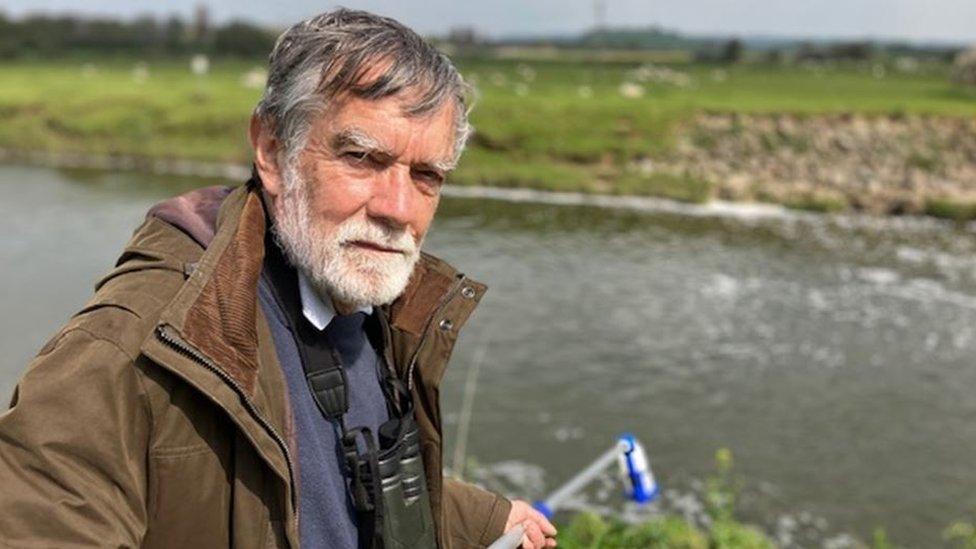
Retired chemist Dr Andrew Clegg runs a group of citizen scientist who measure phosphate levels in the river Parrett in Somerset and Dorset
Dr Andrew Clegg is a retired chemist who runs the Parrett and Yeo Phosphate Pollution Study PYPPS, a group of volunteer citizen scientists, who regularly take phosphate samples from the river Parrett in Somerset and Dorset.
Wessex Water said the problem of phosphates in rivers here were mainly from agriculture run off.
But Dr Clegg said his readings showed the main source in this valley was from sewerage works.
"We have 11 sewerage works and none of them remove the phosphorous. Last year in July all the streams from the farms dried up and we were left with quite a high concentration of phosphate," he said.
"The water companies add phosphate to the water to protect the cast iron pipes from rusting and to protect us from being poisoned by lead pipes.
'Outperform targets'
"Removing phosphate from tap water would help but you also need to remove the phosphate from urine which means you have to have a phosphate removal system from the sewerage works."
Wessex Water's Matt Wheeldon said phosphorous added to water was only 5% of discharges and the situation would improve soon.
"As far as phosphorous levels go... we outperform the targets. Every single phosphorous removal plant that we have way out performs the targets, we're very proud of that.
"And storm overflows are future targets so we are going to hit those too."
The PYPPS study was established when all new house building was put on hold in the Parrett catchment following a European High Court ruling that a number of internationally important (Ramsar) wetland sites were not being managed in a manner that was lawful and were in a declining ecological state.
The Catchment Area of the Somerset Moors and Levels was one of these areas and the offending pollutant was excessive phosphate nutrient.
'Real problem'
Liberal Democrat executive member at Somerset Council, Mike Rigby, said: "In this part of Somerset we have a real problem with phosphates in the rivers.
"About 52% of those phosphates are coming from waste water treatment works and about 35% from agriculture.
"We are focussing on those both but the waste water from treatment works in particular need to be a lot better and the problem is, because of this issue, about 10,000 homes (are) blocked - unable to get planning permission across the whole to the county.
"It's affecting house prices with excess demand from places like [new nuclear power station] Hinkley Point C. We have got a lot of people not being able to get on the housing ladder."
The Taunton Deane MP and Water Minister Rebecca Pow declined an interview with the BBC.

Follow BBC West on Facebook, external, Twitter, external and Instagram, external. Send your story ideas to: bristol@bbc.co.uk , external
Related topics
- Published5 April 2023
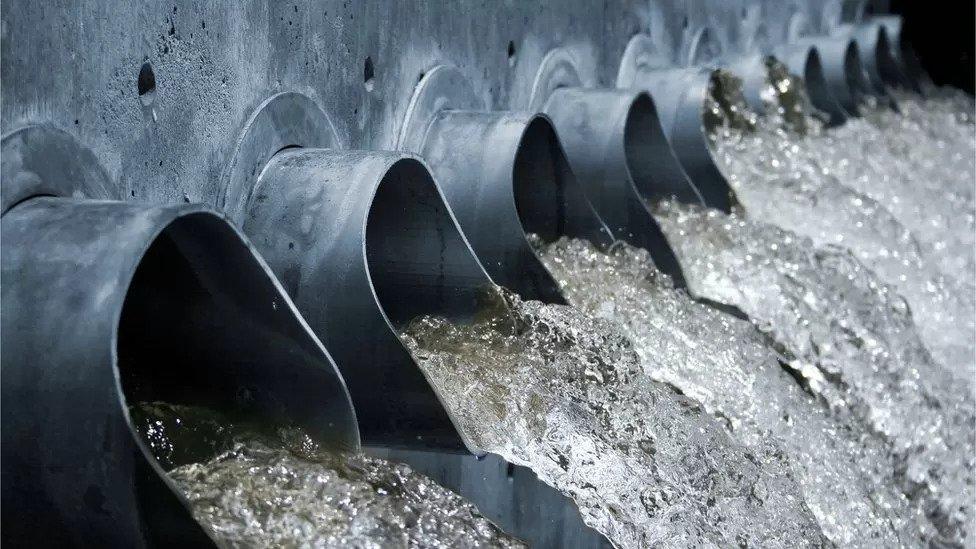
- Published9 November 2022
